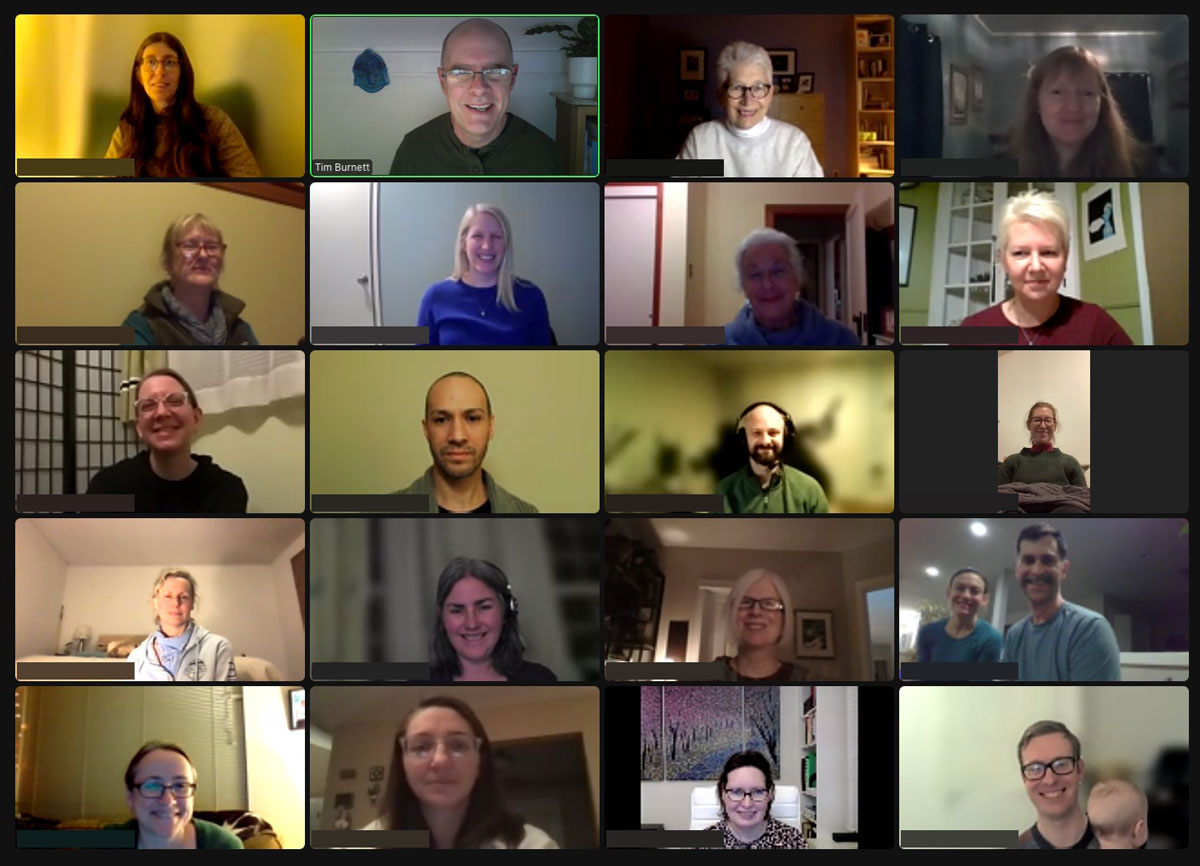Mindful Self-Compassion
Explore our mindfulness and compassion programs
Search | Drop-In | Living | MBSR | MSC | Healthcare | Retreats | Continuing Education | Teacher Training | Going Deeper | Printable Schedule
Mindful Self-Compassion (MSC)

Learning to Be on Your Own Side: An Introduction to Self-Compassion

Self-Compassion Training for Healthcare Communities

Rooted & Rested: A Day of Mindfulness and Self-Compassion

Fierce Compassion: Womenʹs Retreat
Mindful Self-Compassion is a great course for learning to befriend yourself, especially when things are tough. This nourishing evidence-based course combines the skills of mindfulness and self-compassion, providing a powerful tool for emotional resilience. Or our Introduction to Self-Compassion program will give you a taste.
Continuing Education credits: MSC attendance qualifies you for up to 24 APA CE credits (psychologists, MFTs, LPCCs, LEPs, and LCSWs) or up to 28.75 BRN credits (nurses). Sign up for continuing education during class registration (additional fee).
Want to learn more about this style of compassion training before taking the plunge? Check out our Free Drop-In and Introductory Programs.
Curious about what it’s like taking the 8-week MSC class? Review the info below and consider watching this five-minute message from Senior Teacher Tim Burnett.
You Are Welcome Here
Everyone is welcome at Mindfulness Northwest, regardless of race, religion, age, ability, gender expression, who you love, what you believe -- everyone. We at Mindfulness NW work hard to make our spaces safe for all, and we thank you for joining us with that same intention.
I look forward to the online MSC class each week. You have such an amazing way of holding space and guiding us through these practices that I feel like I’m on a mini-retreat during class.
More About Mindful Self-Compassion (MSC)
Mindful Self-Compassion (MSC) was developed by Christopher K. Germer, PhD, leader in the integration of mindfulness and psychotherapy, and Kristin Neff, PhD, pioneering researcher in the field of self-compassion.
Research has shown that self-compassion greatly enhances emotional well-being. It boosts happiness, reduces anxiety and depression, and can even help maintain healthy lifestyle habits such as diet and exercise. Being both mindful and compassionate leads to greater ease and joy in our daily lives.
MSC can be learned by anyone. It’s the practice of learning to befriend yourself, especially when things are tough.
IN MSC YOU WILL LEARN
- How to stop being so hard on yourself
- How to handle difficult emotions with greater ease
- How to motivate yourself with encouragement rather than criticism
- Mindfulness and self-compassion practices for home and everyday life
- The theory and research behind mindful self-compassion
RECOMMENDED READING
- Kristin Neff, Self-Compassion: The Proven Power of Being Kind to Yourself
- Christopher Germer, The Mindful Path to Self-Compassion
What are your classes like?
Our teachers work hard to create a supportive, friendly, and safe classroom community for you and the other participants in our multi-week classes. Mindfulness and compassion training can be many things to many people at different points in their lives: supportive, exploratory, revealing, and at times challenging. The classes include both tools you can use every day and opportunities to take a deep dive into your mind, habits, and conditioning. This process has many benefits but it’s also important to consider if the time is right. Please read on and consider watching the 5-minute video below.
There are instances where a longer course like Mindfulness-Based Stress Reduction or Mindful Self-Compassion can be less helpful or even harmful. If you've recently experienced serious psychological challenges like schizophrenia or psychosis not responsive to medication, or you are experiencing severe depression with thoughts of suicide, class is probably not helpful at this time. We also suggest caution if you're recently in recovery, recently lost a close loved one, have Post-Traumatic Stress Disorder (PTSD), or have recently experienced significant trauma.
If you're unsure about registering for a course, please contact the Mindfulness Northwest office. We want to be sure there is sufficient support for you and that the timing is right for taking our courses.
WHO TAKES OUR CLASSES?
All adults (18+) are welcome! Our supportive, inclusive community celebrates participants from all backgrounds. Everyone is welcome at Mindfulness Northwest, regardless of race, religion, age, ability, gender expression, who you love, what you believe -- everyone. We at Mindfulness NW work hard to make our spaces safe for all, and we thank you for joining us with that same intention.
Certain retreats are best suited for more experienced practitioners; details about prerequisites are included with each event description.
Couples and close friends do often take our classes together. We ask that people who are attending our programs together please register separately.
LEARNING MORE
We hope you enjoy this five-minute message from Executive Director Tim Burnett on what our classes look and feel like. We recommend you watch it before enrolling in an 8-week or residential MBSR or MSC.
Preparing for Class
We recommend you watching this five-minute message from Senior Teacher Tim Burnett on what our classes look and feel like before enrolling in an 8-week or residential MBSR or MSC.
If you're unsure about registering for a course, please contact the Mindfulness Northwest office. We want to be sure there is sufficient support for you and that the timing is right for taking our courses.
More on Continuing Education
Continuing Education Credit is available for many professions:
- In most of our 8-week MIndfulness-Based Stress Reduction (MBSR) and Mindful Self-Compassion (MSC) courses, APA CE's & BRN's are available for psychologists, nurses, MFTs, LPCCs, LEPs, and LCSWs. Note that requests for continuing ed after a course has begun incur a $50 late fee.
- in our 5-week Mindfulness for Healthcare Professionals (MHP) course, CME credit is available for physicians, nurses, and other healthcare professionals.
Regarding partial attendance:
- For APA CE's (MBSR & MSC), complete attendance of the course is required. We can sometimes offer make-up classes in a parallel course, but this is not always available. If you know you will miss a session, we recommend that you wait to register for a series when you can plan to attend all sessions.
- For CME's, the attendance requirement is more flexible: credit can be pro-rated to the number of hours you attend.
Scroll to CE details for MHP | MBSR | MSC
5-week Mindfulness for Healthcare Providers (MHP) Course
Physicians, nurses, therapists, and social workers: PeaceHealth St. Joseph designates this live activity for a maximum of 16.25 AMA PRA Category 1 Credits™. It meets the criteria for Category I CME credit to satisfy the relicensure requirements of the Washington State Medical Quality Assurance Commission.
Learning Objectives for the 5-week Mindfulness for Healthcare Providers Course. After this education, learners should be able to:
- Choose appropriate mindfulness training techniques in preventive and responsive ways in high-stress situations.
- Utilize appropriate mindfulness practices to mitigate the risk factors for burnout.
- Discuss strategies with peers for a more positive, mindful engagement in work and home situations that have previously triggered stress response and unhelpful behaviors.
- Identify helpful vs. unhelpful thought patterns, problem solving, emotional regulation, and meaning-focused coping strategies.
- Demonstrate meaningful change in personal mindfulness, perceived stress, and burnout as shown in standardized measures administered pre- and post-activity.
8-week Mindfulness-Based Stress Reduction (MBSR) Course
Psychologists: Up to 27.0 CE Continuing Education Credits for this program are provided by UC San Diego Center for Mindfulness. The UC San Diego Center for Mindfulness is approved by the American Psychological Association to sponsor continuing education for psychologists. The UC San Diego Center for Mindfulness maintains responsibility for this program and its content.
Licensed MFTs, LPCCs, LEPs, LCSWs: Up to 27.0 Continuing Education Credits for this program are provided by UC San Diego Center for Mindfulness. The UC San Diego Center for Mindfulness is approved by the American Psychological Association to sponsor continuing education for psychologists. 27.0 CE credit may be applied to your license renewal through the California Board of Behavioral Sciences.
Nurses: UC San Diego Center for Mindfulness is approved by the California Board of Registered Nursing, Provider Number CEP16351, for 32.0 contact hours.
UCSD CE Learning Objectives for the 8 week Mindfulness-Based Stress Reduction (MBSR) course:
- Articulate the key aspects of mindfulness as it relates to stress reduction, coping with pain and illness and enhancing well-being
- Differentiate MBSR from relaxation and other distraction techniques that may seem similar but are fundamentally and theoretically quite different in contending with difficulty and enhancing quality of life
- Apply mindfulness techniques in both personal and professional settings as a means of contending more effectively with the demands of both settings
- Integrate mindfulness into social interaction with patients, colleagues, supervisors, family and friends to facilitate more effective and mindful communication
- Articulate the potential benefits of mindfulness-based stress reduction (and mindfulness in general) to educate patients and their families about the benefits of such programs in their own lives
- Implement brief mindfulness practices with patients and family members as a means of contending with acute pain, anxiety and distress.
CE Registrants are responsible for completing all requirements for attendance or making up missed classes, as well as completing the post class evaluation by no later than 3 days after the last class meeting. Failure to do so will result in forfeiture of CE’s.
8-week Mindful Self-Compassion (MSC) Course
Psychologists: Up to 24.0 Continuing Education Credits for this program are provided by UC San Diego Center for Mindfulness. The UC San Diego Center for Mindfulness is approved by the American Psychological Association to sponsor continuing education for psychologists. The UC San Diego Center for Mindfulness maintains responsibility for this program and its content.
Licensed MFTs, LPCCs, LEPs, LCSWs: Up to 24.0 Continuing Education Credits for this program are provided by UC San Diego Center for Mindfulness. The UC San Diego Center for Mindfulness is approved by the American Psychological Association to sponsor continuing education for psychologists. Credits may be applied to your license renewal through the California Board of Behavioral Sciences.
Nurses: UC San Diego Center for Mindfulness is approved by the California Board of Registered Nursing, Provider Number CEP16351, for 28.75 contact hours.
UCSD CE Learning Objectives for the 8-week Mindful Self-Compassion (MSC) class:
- Describe the theory and research supporting mindful self-compassion
- Develop and apply self-compassion practices to motivate themselves with encouragement rather than self-criticism
- Assess and manage difficult situations and emotions with greater moment-to-moment acceptance
- Develop and apply self-compassion practices to respond to feelings of failure or inadequacy with self-kindness
- Transform difficult relationships, old and new, through self-validation
- Utilize the art of savoring and self-appreciation to overcome negative attention bias
- Apply core mindfulness and self-compassion practices into daily life
- Demonstrate simple self-compassion practices to patients, students, or clients
CE Registrants are responsible for completing all requirements for attendance or making up missed classes, as well as completing the post class evaluation by no later than 3 days after the last class meeting. Failure to do so will result in forfeiture of CE’s.





